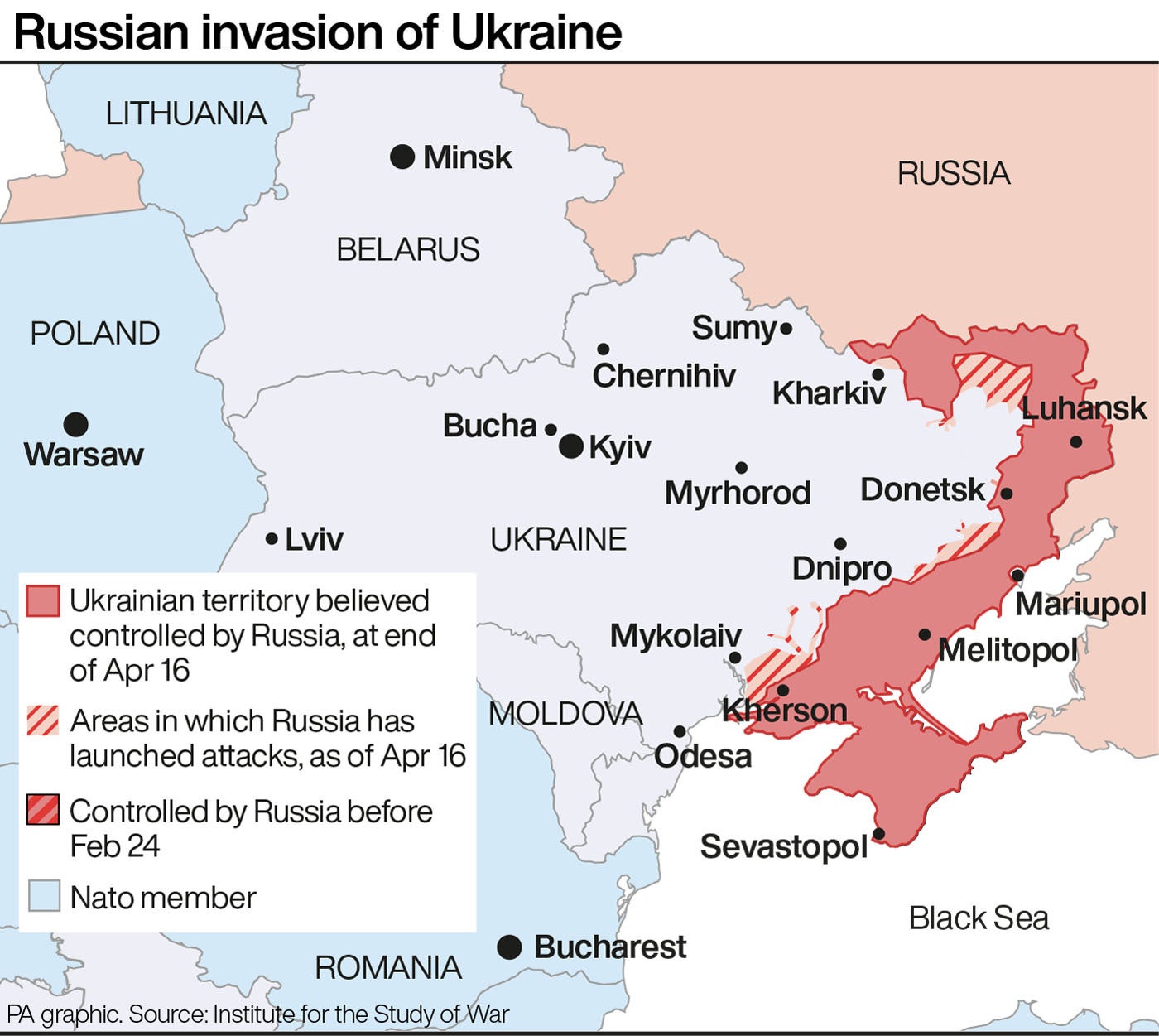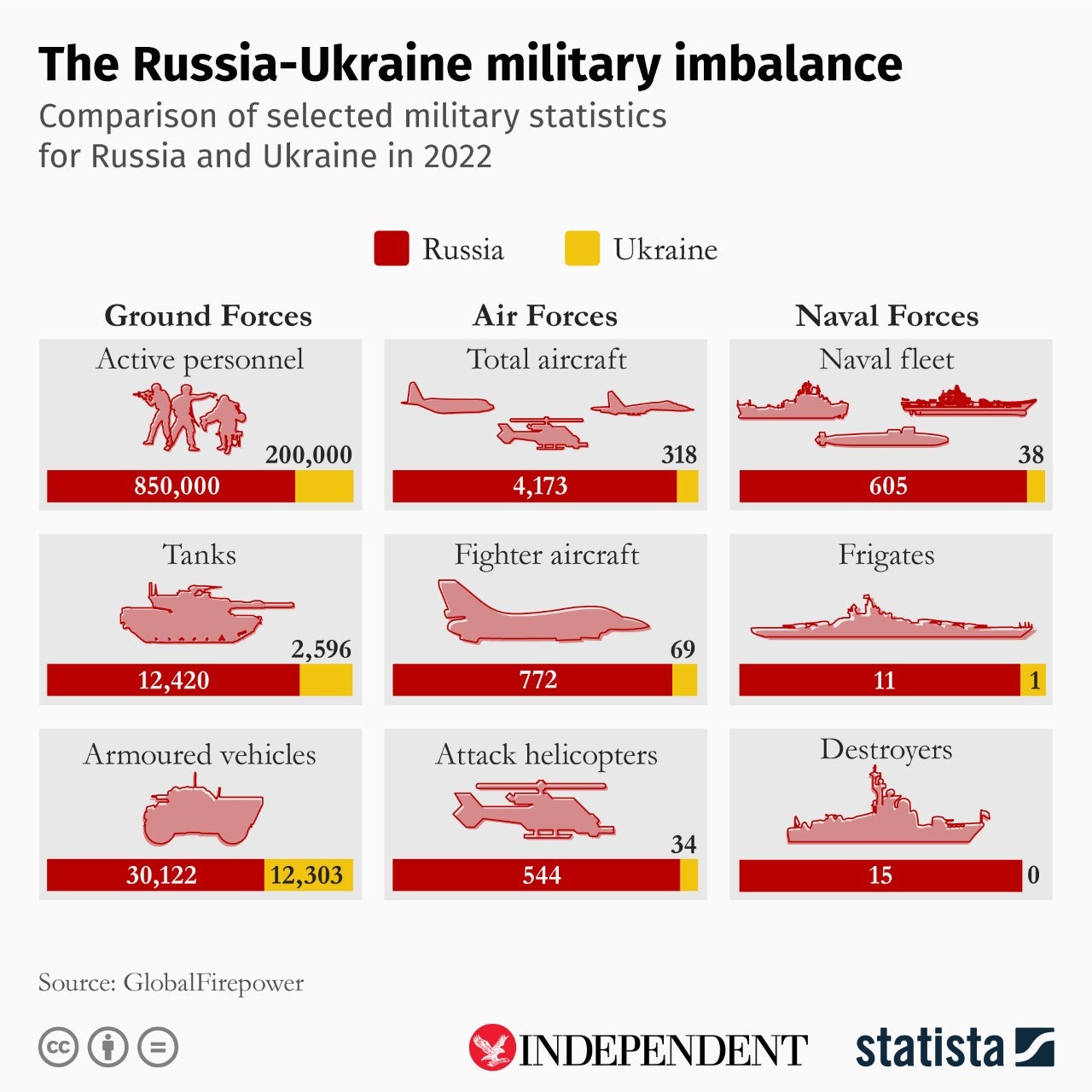Ukraine: What are the Donetsk and Luhansk People’s Republics?
Pro-Russia separatist regions in Donbas declared independence from Kyiv in 2014
Your support helps us to tell the story
From reproductive rights to climate change to Big Tech, The Independent is on the ground when the story is developing. Whether it's investigating the financials of Elon Musk's pro-Trump PAC or producing our latest documentary, 'The A Word', which shines a light on the American women fighting for reproductive rights, we know how important it is to parse out the facts from the messaging.
At such a critical moment in US history, we need reporters on the ground. Your donation allows us to keep sending journalists to speak to both sides of the story.
The Independent is trusted by Americans across the entire political spectrum. And unlike many other quality news outlets, we choose not to lock Americans out of our reporting and analysis with paywalls. We believe quality journalism should be available to everyone, paid for by those who can afford it.
Your support makes all the difference.Two British men and a Moroccan national accused by a Russia-backed court in the eastern separatist region of Ukraine known as the Donbas have been accused of being mercenaries and sentenced to death.
Aiden Aslin, 28, Shaun Pinner, 48, and Brahim Saadoun, reportedly a student studying in Kyiv, were arrested in April and accused of fighting with the Ukrainian army, their sentencing the latest outrage since Russian president Vladimir Putin announced his “special military operation” on 24 February.
Mr Putin declared in a televised address that day that he hoped to “de-Nazify and demilitarise” his western neighbour’s government, a spurious rationale that only served to draw a line under European and American diplomatic efforts to avert calamity.
Explosions were reported soon afterwards on the outskirts of the eastern cities of Kharkiv, Kramatorsk and Mariupol, as well as the capital Kyiv.
Ukrainian president Volodymyr Zelensky swiftly introduced martial law, while he remained in the capital to bravely lead the defence and rally the international community to send more weapons, more armoured vehicles and more military aid.
Several months on, the fighting continues to rage as the attempted conquest proves to be anything but the formality Moscow appears to have expected, not least thanks to the heroic resistance mounted by the Ukrainian people.
Thousands of people have nevertheless been killed on both sides – including many civilians and children – and atrocities alleged against Russian soldiers, including torture, rape and murder.
Tensions in Eastern Europe had simmered since December 2021 when Russia stationed an estimated 130,000 soldiers along its western border and then another 30,000 in Belarus, consistently denying it had any attention of making incursions into Ukraine.
Frantic negotiations were pursued by the likes of US secretary of state Antony Blinken, French president Emmanuel Macron, German chancellor Olaf Scholz and UK foreign secretary Liz Truss in the hope of securing the peace, all of which ultimately proved futile.
The situation escalated drastically in the days before the fighting began when Mr Putin formally recognised two enclaves held by pro-Russian separatist groups, both located within Ukraine’s eastern Donets Basin (or “Donbas”) region, as independent states.
Denis Pushilin and Leonid Pasechnik, leaders of the self-proclaimed Donetsk People’s Republic (DPR) and Luhansk People’s Republic (LPR) respectively, made a direct appeal to the Kremlin and asked for its support.
The Russian leader duly informed his security council that it was necessary that their appeals be considered seriously.
Mr Putin was told by his predecessor, Dmitry Medvedev, now deputy chair of the council, that he believed a majority of Russians would support the two would-be republics’ claims, adding that around 800,000 Russian citizens lived in the DPR and LPR.
Recognition of their status as sovereign states quickly followed, giving Mr Putin a pretext to send troops across the border while arguing that he was doing so to protect the people of those breakaway regions as fellow allies against Kyiv.
The international community immediately criticised the decision, with the UN Security Council expressing “great concern”.

The Donbas is Ukraine’s industrial heartland, rich in coal reserves, whose port cities like Mariupol are crucial for the export of Ukrainian goods via the Black Sea, notably agricultural products and metals.
Russia has concentrated much of its focus on Mariupol since the war began – shelling the city into oblivion, terrorising its remaining residents and finding itself caught up in a long-running standoff at the Azovstal steel plant – as it seeks to secure a land bridge along the Sea of Azov so as to link up the DPR and LPR with the Crimean Pensinula and secure a stronger footing.
Those regions first declared their independence on 12 May 2014 after Mr Putin annexed Crimea, like Catherine the Great before him, in response to his preferred pro-Moscow presidential candidate, Viktor Yanukovych, having been driven from power by mass protests.
An estimated 14,000 people have been killed in the conflict in the region over the last eight years, with Nato and Ukraine accusing Russia of arming the separatist rebels on the quiet, a charge the Kremlin denies.

The DPR and LPR are officially considered terrorist organisations by Kyiv, although that is not a designation agreed upon by the US, EU or other international bodies.
Their previous leaders, Alexander Zakharchenko and Igor Plotnitsky, were signatories to the Minsk agreements of 2014 and 2015, which were forged in the hope of ending the violence but which were never enacted because of differing interpretations of the accords.
Russia insisted that it was not a party to the conflict and that the agreement therefore did not apply to it, arguing that it could not remove armed forces and military hardware from Donetsk and Luhansk because the combatants were part of a separatist insurgency and not its own.
Both sides continued to disagree, with Ukraine viewing the Minsk accords as a means by which it could re-establish control over its border while Russia saw them as a chance to grant autonomy to the rebel territories, effectively giving it a voice in Ukrainian foreign policy by proxy.
The prospect of elections in Donbas was also controversial given that they raised the possibility of former separatist warlords sitting in parliament or winning high office within the police, an outcome regarded as intolerable by many Ukrainians.
The Independent has a proud history of campaigning for the rights of the most vulnerable, and we first ran our Refugees Welcome campaign during the war in Syria in 2015. Now, as we renew our campaign and launch this petition in the wake of the unfolding Ukrainian crisis, we are calling on the government to go further and faster to ensure help is delivered. To find out more about our Refugees Welcome campaign, click here. To sign the petition click here. If you would like to donate then please click here for our GoFundMe page.



Join our commenting forum
Join thought-provoking conversations, follow other Independent readers and see their replies
Comments